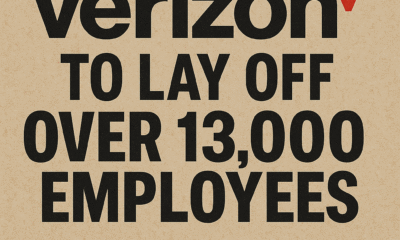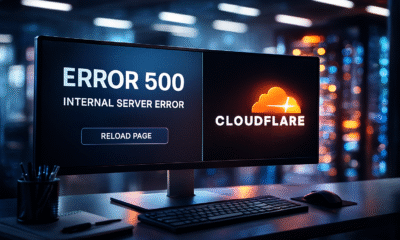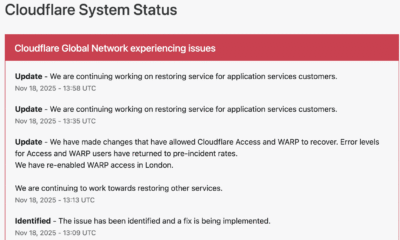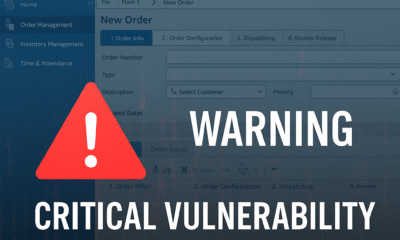ART & CULTURE
Critical CrushFTP Vulnerability Exploited by Hackers—Update Now to Prevent Breach
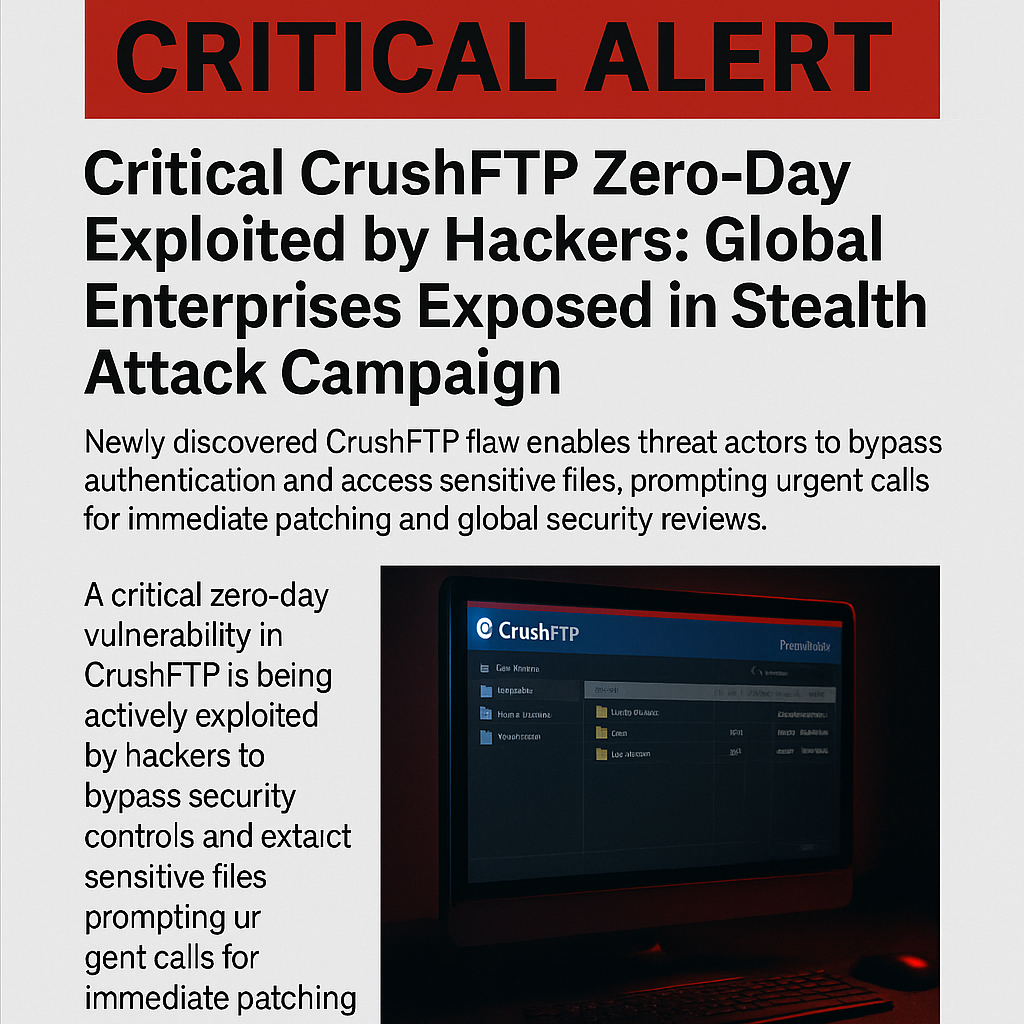
Newly discovered CrushFTP flaw enables threat actors to bypass authentication and access sensitive files, prompting urgent calls for immediate patching and global security reviews.
Hackers Exploit Critical CrushFTP Flaw to Breach Enterprise Networks Worldwide
By EL Ouchen, International Cybersecurity Correspondent
July 20, 2025
In a chilling escalation of cyber intrusions, a critical zero-day vulnerability in CrushFTP, a widely used secure file transfer server, has been exploited by malicious actors to silently infiltrate enterprise systems across the globe. The flaw, tracked as CVE-2024-4040, enables unauthenticated attackers to gain elevated privileges and exfiltrate sensitive data without detection.
“This is a high-severity, real-world exploit affecting active production systems,” said Simon Garrel, a threat analyst at Rapid7. “What makes this attack particularly dangerous is its stealth—it bypasses authentication mechanisms and leaves minimal traces.”
The vulnerability affects CrushFTP versions before 10.7.1 and 11.1.0, allowing attackers to abuse a path traversal flaw in the WebInterface, granting them unauthorized access to system files. Once inside, hackers can download configuration data, including user credentials and encrypted password keys, effectively compromising the entire CrushFTP environment.
Technical Breakdown
Researchers revealed that attackers leveraged the flaw by crafting malicious VFS (Virtual File System) entries. These entries trick CrushFTP into displaying and granting access to files located outside the user’s intended directory scope.
Crucially, the exploit:
- Does not require prior authentication
- Grants access to sensitive server files (
prefs.XML,users/MainUsers/) - Bypasses the server’s normal access restrictions
- Can lead to complete system compromise
A proof-of-concept shared by Rapid7 shows how a malicious user could retrieve encrypted admin credentials by manipulating VFS paths via a standard HTTP request to the WebInterface.
httpGET /WebInterface/function/?command=vfs&vfs=/../../../../users/MainUsers/ HTTP/1.1
Host: target-crushftp-server.com
Once credentials are obtained and decrypted (if password secrets are weak), attackers can escalate privileges or move laterally within the network.
Global Impact
CrushFTP is used by governments, financial institutions, healthcare providers, and tech firms—making this exploit a severe threat across critical sectors.
The U.S. Cybersecurity and Infrastructure Security Agency (CISA) released a formal advisory on July 19, urging immediate patching and compromise assessments.
“Organizations running CrushFTP must upgrade to the patched versions immediately. This vulnerability is under active exploitation and poses a high risk to sensitive data,” warned CISA in its bulletin.
Vendor Response and Mitigation
CrushFTP was notified responsibly and released emergency patches (v10.7.1 and v11.1.0) within days. The vendor also published an official advisory with mitigation steps.
Recommended actions:
- Upgrade CrushFTP to the latest secure version
- Audit logs for unauthorized VFS access
- Rotate any credentials stored in CrushFTP
- Monitor for signs of lateral movement
Organizations should also check whether they were running vulnerable versions between February and July 2025, as attackers appear to have launched the campaign months before public disclosure.
Broader Significance
This incident underscores the growing danger of zero-day attacks on widely deployed infrastructure software, especially in secure file transfer systems that often handle sensitive client and operational data.
It also reveals a disturbing trend: threat actors exploiting file servers not just to steal data, but to use them as launchpads for deeper network intrusions.
“This is not just a CrushFTP issue—it’s a wake-up call about secure file transfer systems in general. They are high-value targets, and attackers know it,” said Elena Kozlova, senior researcher at SentinelOne.
Conclusion
As cyberattacks grow more targeted and stealthy, organizations must move beyond reactive patching and embrace proactive threat hunting, configuration auditing, and secure architecture principles. For users of CrushFTP, the message is clear: patch now, audit deeply, and remain vigilant.
Source:
The Hacker News – Hackers Exploit Critical CrushFTP Flaw
ART & CULTURE
Morocco to Spotlight Global South’s Role in Turbulent Times at MEDays 2025
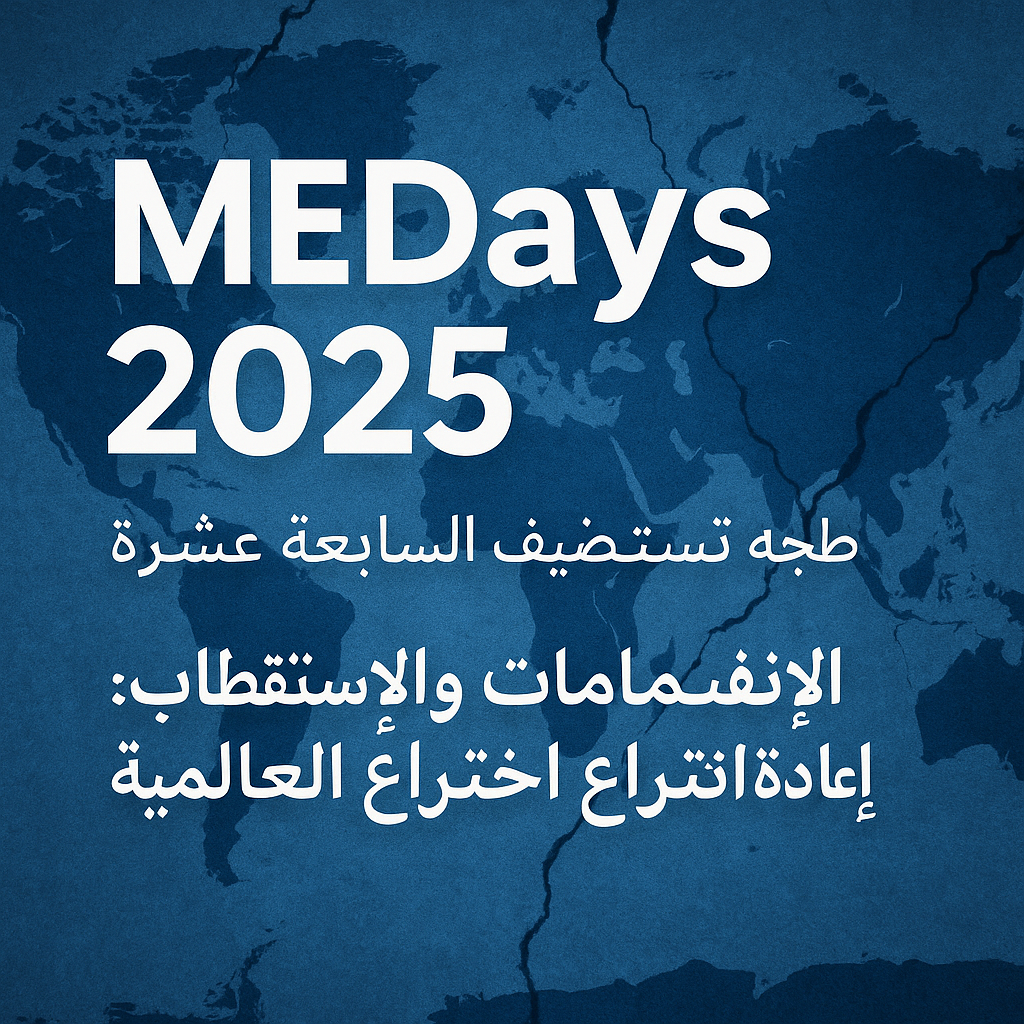
From conflict zones to climate diplomacy, the 2025 MEDays Forum will bring world leaders and experts to Morocco to rethink global stability and redefine the role of the Global South.
🌍 Tangier, Morocco — July 27, 2025
In a world increasingly fractured by geopolitical rivalries, wars, and economic uncertainty, Tangier is set to become the global stage for dialogue, diplomacy, and strategic vision. From November 26 to 29, 2025, the Moroccan port city will host the 17th edition of the MEDays Forum, under the evocative theme:
“Fractures and Polarization: Reinventing the Global Equation.”
Organized by the Amadeus Institute, this year’s forum arrives at a pivotal moment in world affairs. From the war in Ukraine to unrest in the Sahel, from the rise of populism to the weaponization of energy, the world faces a cascade of crises. The forum aims to confront these fractures head-on and propose actionable frameworks to address the new global disorder.
“This edition will serve as a critical platform to debate the future of international governance and the place of the Global South within it,” said Brahim Fassi Fihri, President of the Amadeus Institute.
🔹 A Platform for Multipolar Dialogue
With over 300 speakers, including heads of state, ministers, diplomats, academics, and CEOs, MEDays 2025 is expected to draw more than 7,000 participants from over 120 countries.
Key topics include:
- Geopolitical reordering and power vacuums
- Energy transition and climate instability
- Digital sovereignty and cyber conflicts
- Multilateralism vs. regionalism
- Africa’s voice in shaping global governance
As global institutions struggle to keep pace with shifting realities, MEDays offers what many consider a “Davos for the Global South”—a rare venue where perspectives from Africa, Asia, and Latin America drive the conversation.
🔹 Morocco’s Growing Strategic Role
Morocco’s choice as host is no coincidence. Over the past decade, the North African kingdom has positioned itself as a bridge between continents, a gateway to Africa, and a leader in renewable energy diplomacy.
“Hosting MEDays reaffirms Morocco’s commitment to multilateral dialogue and regional leadership in times of global polarization,” noted political analyst Dr. Nadia Lakhdar.
Tangier’s transformation into a high-tech and logistics hub further solidifies its role as a venue where ideas, influence, and innovation intersect.
🔹 Human Impact and Urgency
Beyond the headlines, the geopolitical fractures the forum will address are deeply human. Conflicts have displaced over 110 million people globally, while climate-related disasters have affected millions more. Youth unemployment, inflation, and debt crises burden entire regions—especially in Africa and the Middle East.
“We can’t talk about geopolitics in isolation. Every fractured policy or failed dialogue creates ripple effects felt by the most vulnerable,” said Fatima Al-Khatib, a youth activist from Jordan participating in the forum.
MEDays 2025 is expected to propose tangible policy frameworks, multi-stakeholder cooperation models, and public-private partnerships to address urgent global challenges.
ART & CULTURE
“We’ve Had Enough”: Moroccan Immigrants Protest With Their Absence
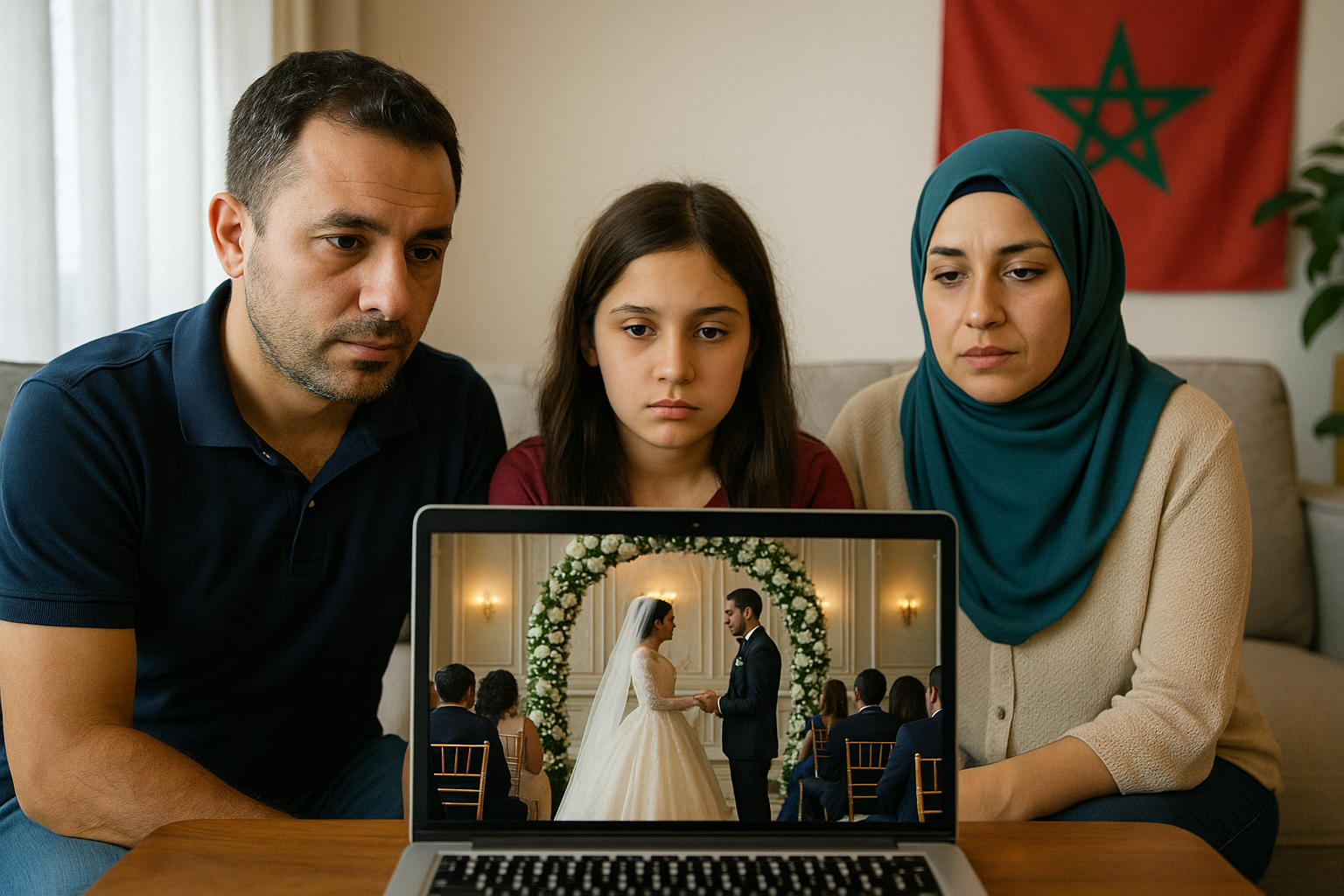
Rising airfare, political frustration, and lack of confidence in public services push thousands of Moroccan immigrants to skip summer visits home
By El Mostafa Ouchen | Rabat / Paris / Amsterdam / Montréal
RABAT – For decades, summer in Morocco has been defined by a vibrant homecoming ritual: airports buzzing with arrivals, highways jammed with rental cars, and families embracing across generations. But in 2025, that emotional annual migration is faltering. From Paris to Toronto, Brussels to Barcelona, Moroccan immigrants are increasingly choosing not to return home this summer.
“This is the first time in 18 years I won’t be going back,” said Amina M., a nurse living in Lille, France. “It’s not just the price — it’s the feeling that Morocco has turned its back on people like us.”
🚫 Soaring Costs and Systemic Barriers
At the heart of the no-return movement lies economic hardship. Roundtrip flights from Europe to Morocco have nearly doubled in price this year. In early July, economy tickets from Brussels to Casablanca were selling for €780 to €1,200, compared to €300–€400 last year.
Meanwhile, ferry operators from Spain to Tangier raised rates by over 45%, citing fuel costs and seasonal demand. For a family of five traveling by car, the total cost can now exceed €2,500, even before accommodations, gifts, or travel within Morocco.
“The bled has become luxury,” joked Karim Belkadi, a Moroccan living in Rotterdam. “We work all year, and we’re punished for wanting to visit our parents.”
🗺️ Deeper Discontent: Bureaucracy, Corruption, and Lack of Change
Beyond financial concerns, emotional and political fatigue is a powerful factor. Many Moroccan expatriates say they feel ignored, or even exploited, by a system that praises their remittances but disregards their concerns.
Issues cited include:
- Customs harassment at border points
- Corruption in port and airport inspections
- Poor infrastructure and medical access in rural hometowns
- Lack of legal recognition for diaspora contributions or dual nationality rights
“We send billions in remittances, but what do we get? Broken roads and disrespect at the border,” said Samira El-Haddadi, a Moroccan-Canadian based in Montreal.
According to Bank Al-Maghrib, Moroccans abroad sent MAD 100 billion ($10B USD) in remittances last year — a record sum — making them the country’s top source of foreign currency.
Yet many say their loyalty is wearing thin.
👥 The Silent Boycott — and Its Consequences
Online, the movement is growing under hashtags like #MREBoycott2025, #BladiBghatniFlouss, and #StayHomeThisSummer. Social media platforms like TikTok and Instagram are filled with Moroccan immigrants urging others to “make a statement” by not returning.
Economists warn the absence of diaspora spending will impact:
- Local tourism
- Rural economies
- Seasonal employment in service sectors
“The Moroccan diaspora are not just tourists. They are cultural and economic lifelines,” said Dr. Nour El Bakkali, a migration policy expert at Hassan II University. “Ignoring their grievances is a strategic error.”
⏳ Will Things Change?
So far, officials have responded with silence or defensiveness. An attempt by the Ministry of Moroccans Residing Abroad to address the concerns was met with mockery after it launched an “Appreciate Your Homeland” campaign on Instagram — with comments disabled.
Back in France, Amina M. summarized the sentiment best:
“We love Morocco. But this summer, love is not enough.”
ART & CULTURE
New Diplomatic Momentum: Portugal Supports Morocco’s Autonomy Framework for Sahara
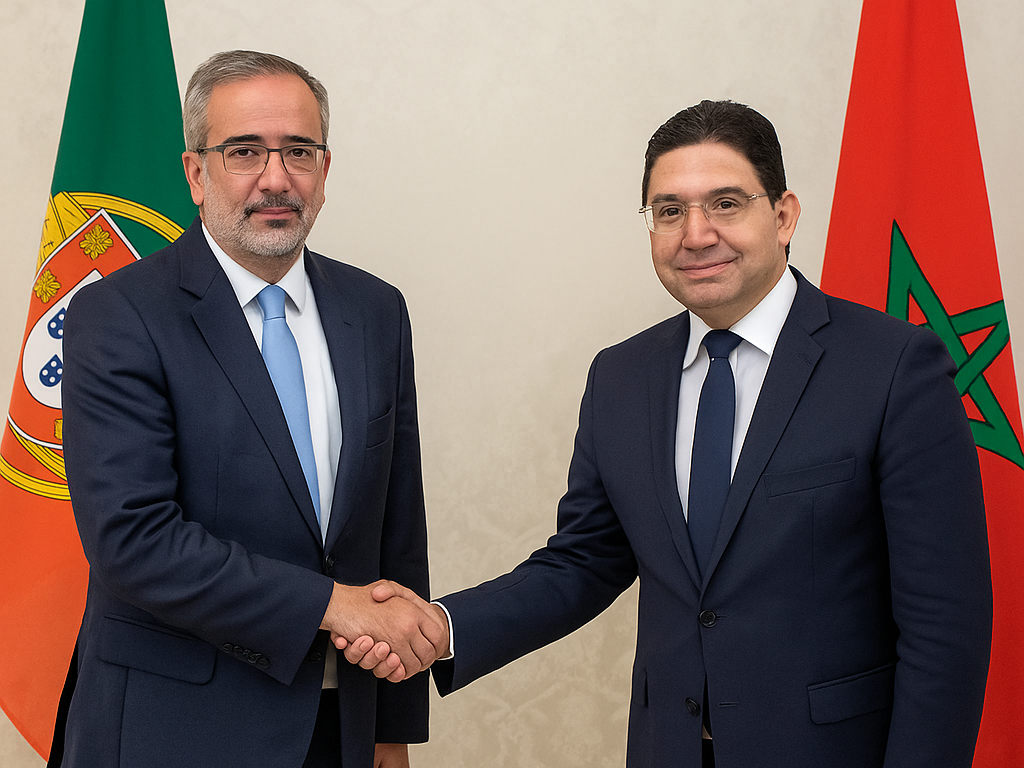
Lisbon bolsters regional diplomacy with full endorsement, while humanitarian stakes rise
📰 Lisbon Backs Rabat in Key Diplomatic Shift
A fresh wave of cautious optimism emerged across Western Sahara this week after Portugal reaffirmed its support for Morocco’s 2007 autonomy initiative. In an official visit to Lisbon on July 22, 2025, Moroccan Foreign Minister Nasser Bourita was welcomed by his Portuguese counterpart Paulo Rangel, with both sides issuing a joint declaration calling the autonomy proposal the “most serious, credible, and constructive” solution to the long-standing dispute.
This development places Portugal among a growing list of European nations—including France, Spain, and the United Kingdom—that have shifted toward supporting Morocco’s framework for peace under United Nations auspices.
📌 Key Facts & Diplomatic Milestones
- Date of meeting: July 22, 2025, Lisbon
- Officials present: Paulo Rangel (Portugal), Nasser Bourita (Morocco)
- Official statement: Portugal affirms Morocco’s autonomy initiative as a solid basis for resolving the Sahara conflict under the UN framework
- What the plan entails: Autonomy for Western Sahara under Moroccan sovereignty, with elected local governance over civil matters, while Morocco retains control of defense, diplomacy, and religion
- Portugal’s position: Stops short of full sovereignty recognition but aligns with other European partners
The endorsement signals a notable step in Portugal’s foreign policy approach and adds momentum to Morocco’s international diplomatic strategy.
🗣️ Voices and Perspectives
Speaking in Lisbon, Portuguese Foreign Minister Paulo Rangel said:
“Following moves by France, Spain, and the United Kingdom, Portugal affirms that Morocco’s autonomy plan is the most serious basis for a solution—within the framework of the United Nations.”
Political expert José Tomaz Castello Branco noted:
“This positions Portugal firmly among European allies favoring a political resolution. It also leaves room for Lisbon to adjust its position as the UN process unfolds.”
🧍♂️ Human Impact on the Ground
For residents of Western Sahara, especially those in refugee camps or under uncertain administrative conditions, this diplomatic recognition brings a renewed sense of hope. Humanitarian groups have welcomed the news, noting that political stabilization could finally unlock sustained access to healthcare, education, and infrastructure development—long impeded by regional instability.
However, the Polisario Front—a separatist group backed by Algeria—remains opposed to the plan, insisting on full independence for the Sahrawi people. Activists warn that any plan must be implemented with guarantees of rights, dignity, and local agency.
🌍 Background: A Conflict Spanning Decades
The Western Sahara conflict began in 1975 after Spain’s withdrawal. Morocco took administrative control of the territory, but the Polisario Front declared the Sahrawi Arab Democratic Republic (SADR) in 1976, leading to years of conflict and ongoing diplomatic gridlock.
Morocco’s autonomy plan—first submitted to the UN in 2007—has steadily gained support. With endorsements from the United States, France, Spain, and now Portugal, Rabat is strengthening its international posture.
🔎 Why This Matters Globally
- UN Process: Portugal’s statement supports a UN-based political resolution, increasing pressure on the Polisario Front and Algeria to return to the negotiation table.
- Regional Stability: The plan’s implementation could unlock broader cooperation in North Africa and reduce tensions in the Maghreb.
- Diplomatic Strategy: Morocco’s proactive diplomacy continues to shift global narratives in its favor.
⏭️ What Comes Next
UN-led discussions will likely intensify in the coming months, as Morocco leverages Portugal’s endorsement to push for more international backing. Whether this builds toward a lasting solution or faces renewed resistance remains to be seen. For now, the diplomatic tide appears to be turning in favor of autonomy with stability over prolonged conflict.



